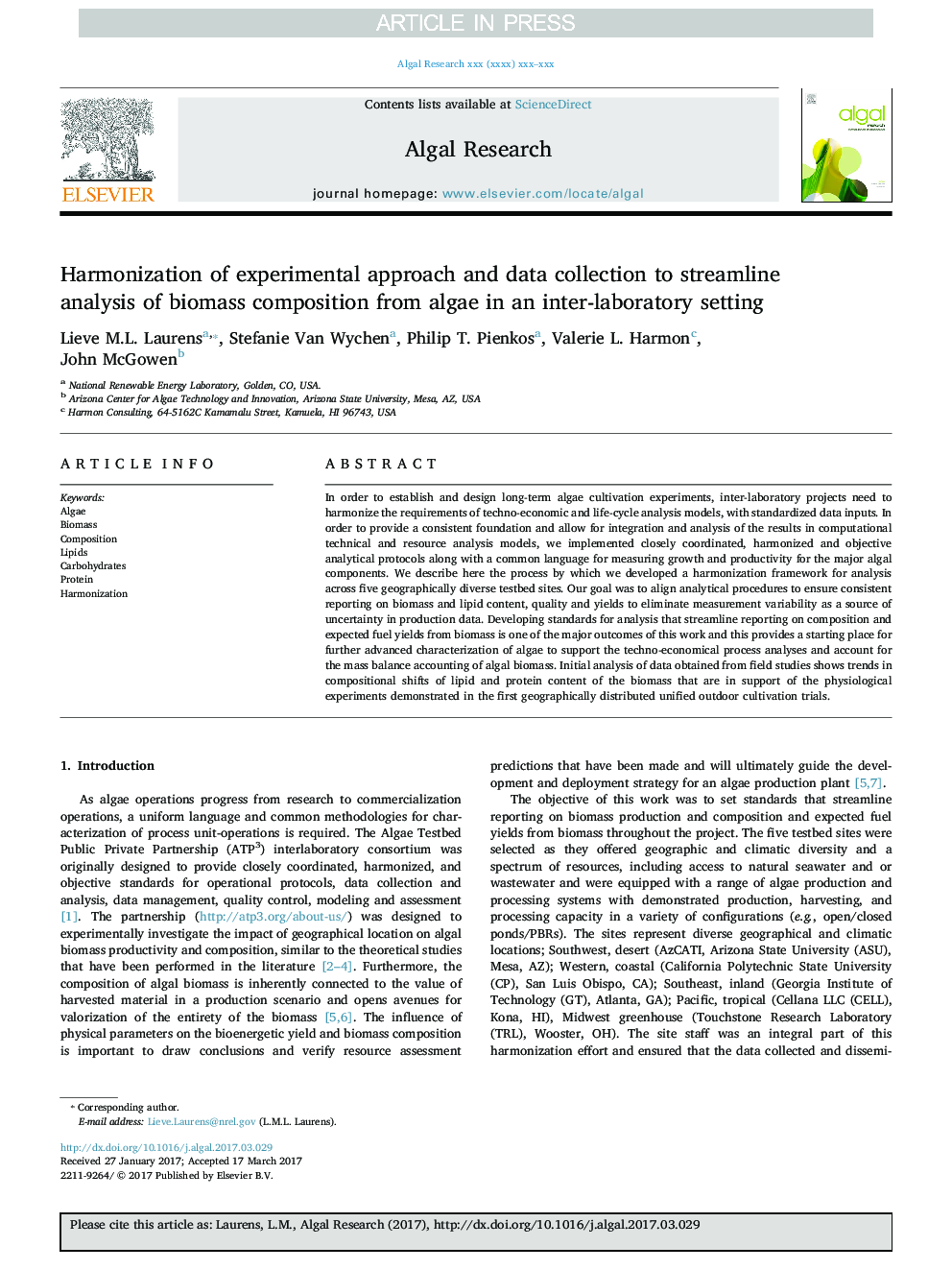| Article ID | Journal | Published Year | Pages | File Type |
|---|---|---|---|---|
| 5478408 | Algal Research | 2017 | 9 Pages |
Abstract
In order to establish and design long-term algae cultivation experiments, inter-laboratory projects need to harmonize the requirements of techno-economic and life-cycle analysis models, with standardized data inputs. In order to provide a consistent foundation and allow for integration and analysis of the results in computational technical and resource analysis models, we implemented closely coordinated, harmonized and objective analytical protocols along with a common language for measuring growth and productivity for the major algal components. We describe here the process by which we developed a harmonization framework for analysis across five geographically diverse testbed sites. Our goal was to align analytical procedures to ensure consistent reporting on biomass and lipid content, quality and yields to eliminate measurement variability as a source of uncertainty in production data. Developing standards for analysis that streamline reporting on composition and expected fuel yields from biomass is one of the major outcomes of this work and this provides a starting place for further advanced characterization of algae to support the techno-economical process analyses and account for the mass balance accounting of algal biomass. Initial analysis of data obtained from field studies shows trends in compositional shifts of lipid and protein content of the biomass that are in support of the physiological experiments demonstrated in the first geographically distributed unified outdoor cultivation trials.
Related Topics
Physical Sciences and Engineering
Energy
Renewable Energy, Sustainability and the Environment
Authors
Lieve M.L. Laurens, Stefanie Van Wychen, Philip T. Pienkos, Valerie L. Harmon, John McGowen,
